Black Caviar
by u/Case_Newmark
Have you ever eaten black caviar? An expensive luxury product, the roe comes from the extinction-threatened sturgeon, which takes up to 30 years to mature. At 100 dollars per ounce, us working-class Andys could only imagine how good it must taste. But what if I told you there exists a kind of black caviar so good, you would sell your country’s democracy for a jar of it?
Just imagine Manafort sliding those salty, slimy fish eggs down his wet gullet, after helping install a corrupt Pro-Russia president in Ukraine. It's a fond memory he was reminded of on July 31st, when his personal Russian spy, Konstantin Kilimnik, emailed him from Moscow. I hope you enjoy this breakdown, “because it is a long caviar story to tell.”
This is the second part of my Russian interference series, where we will explore how Russia exploited Trump and his goons' greed to interfere in the 2016 election. As the last article focused on the hacking and dumping operations, and the spreading of misinformation by the Internet Research Agency, these next two articles will focus on key individuals in the Trump Campaign and their connections to Russia.
The last article examined Roger Stone, and how he worked with Assange and the GRU hackers to release the Clinton emails in the most damaging way possible. Stone saw the opportunity to use “connections” to elevate his status at the campaign, keeping himself relevant through communications with foreign actors. When he was caught, he lied to obfuscate the truth; he had sold out our country to Russia for personal enrichment.
This selling of your soul for cash or status is exactly what fueled and motivated the Russian connections with other Trump campaign members. Between Manafort’s Black Caviar and Papadoupolos’ desperate need to be taken seriously, the most common line between all of these people is their avarice, the overwhelming desire to, above all else, appear legitimate and important. Stone used his connection to Assange and the hackers to achieve this, but others on the campaign had their own Russian connections; one that Russia itself was keen to leverage.
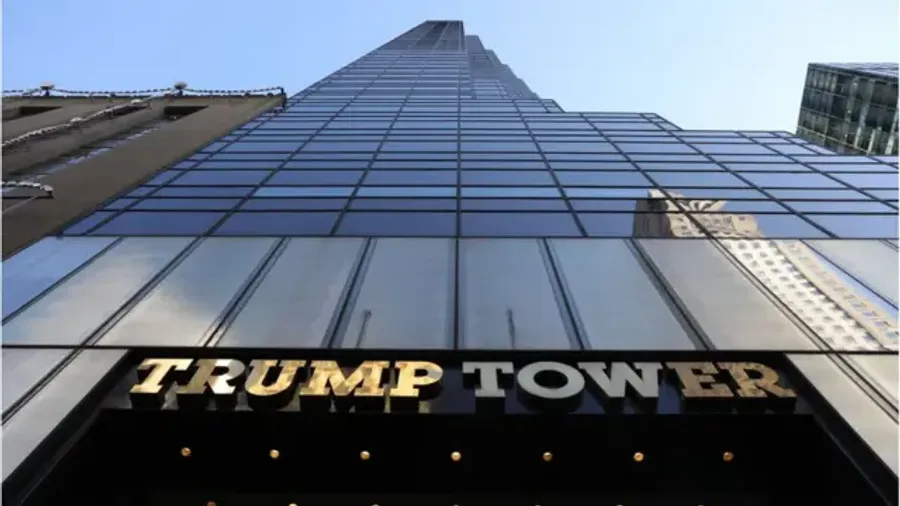
Trump Tower in New York
The Fixer
Micheal Cohen is an American lawyer, who was employed by Donald Trump from 2006 until 2018. Cohen was described as Trump’s “fixer”, and in a 2011 interview, said "If somebody does something Mr. Trump doesn't like, I do everything in my power to resolve it to Mr. Trump's benefit. If you do something wrong, I'm going to come at you, grab you by the neck and I'm not going to let you go until I'm finished."
Cohen would spearhead the infamous Trump Tower Moscow project, beginning in Fall of 2015 until mid 2016. At that point, the project had already had some talks underway - Donald Trump Jr. had initiated talks in 2013 with Crocus Group, a Russian real investment firm. Jr was the primary negotiator on behalf of the Trump Org, and Emin Agalarov (Son of Aras Agalarov, owner of Crocus Group) and Iralki “Ike” Kaveladze represented the Crocus Group, with assistance from Robert Goldstone, a lawyer with connections to both parties.
Kaveladze and Trump Jr. would go on to sign an agreement for the project, and on December 23rd, 2013, an agreement was formed. This allowed an arrangement where the Trump Org would receive a flat 3.5% commission on all sales, with no licensing fees or incentives. A letter of intent (LOI) would be signed shortly afterwards, in January 2014. Plans would slowly begin to progress, with Ivanka Trump meeting with Agalarov in February 2014, and the two organizations discussing design standards and other architectural elements. Felix Sater, who had previously worked as an agent for a Russian Oligarch, Andrei Vladimirovich Rozov, when Rozov bought a building in New York City, would even reference the need to get permission from the Russian government, given the size of the project. Then, in September 2014, communications slowed down from the Trump side, and the plans weren’t acted upon.
Almost a year later, Cohen would get a message from Sater in regards to Trump Moscow. Sater is a New York real estate advisor, who had previously worked for the Trump Org and advised it on a number of projects.
Sater contacted Cohen on behalf of I.C. Expert Investment Company, Sater contacted Rozov with the idea of licensing the trump name and brand for a Trump Tower Moscow, that IC would build themselves.
In September 2015, Cohen received permission from then candidate Trump to negotiate with IC. Cohen would regularly update Trump about the project from 2015 to 2016, as well as updating Ivanka and Trump Jr. One should note that it is concerning that Trump seemed to be so open to a Trump Tower Moscow, despite actively running for President. Cohen would claim that he didn’t consider the political importance of the project at the time, and he didn’t remember anyone on the campaign or Trump himself discussing the political implications. A claim that can only be described as convenient.
Sater and Cohen were both aware that the Russian government would likely need to be kept in the loop about such a project, and worked to facilitate that. On October 12th, 2015, Sater emailed Cohen saying “all we need is Putin on board and we are golden,”. After the LOI for Trump Moscow was signed, both sought to establish a connection with the Kremlin, before proceeding with further construction.
At some point between October 13th and November 2nd 2015, the Trump Org and IC would complete the LOI for Trump Moscow. The LOI would allow the Trump Org to receive between 1 and 5% of all condominium sales, plus 3% of all rental and other revenue. For the hotel portion, Trump Org would get a base 3% gross operating revenues for the first 5 years, then 4% after, and an inventive fee of 20% operating profit. On top of all this, they would also get a 4 million dollar “up front fee” prior to groundbreaking. Needless to say that this is a dream deal, where the Trump Org receives insane benefits for little to no risk. It is possible that IC thought that Trump’s brand would explode following his presidential campaign, and did not seriously expect him to win, only wanting to profit off the Trump brand. Or maybe they recognized that a good deal with a potential president could lead to benefits down the line.
The day after the LOI was transmitted, Sater would email Cohen, suggesting that Trump Moscow could be used to help Trump win the Presidency, saying,
“Buddy our boy can become President of the USA and we can engineer it. I will get all of Putins team to buy in on this. . . . We will manage this process better than anyone. You and I will get Donald and Vladimir on a stage together very shortly...”
Later, Sater would follow up,
“Donald doesn’t stare down, he negotiates… Putin only want to deal with a pragmatic leader, and a successful business man is a good candidate for someone who knows how to negotiate... We can own this election. Michael my next steps are very sensitive with Putins very very close people, we can pull this off... 2 boys from Brooklyn getting a USA president elected. This is good really good.”
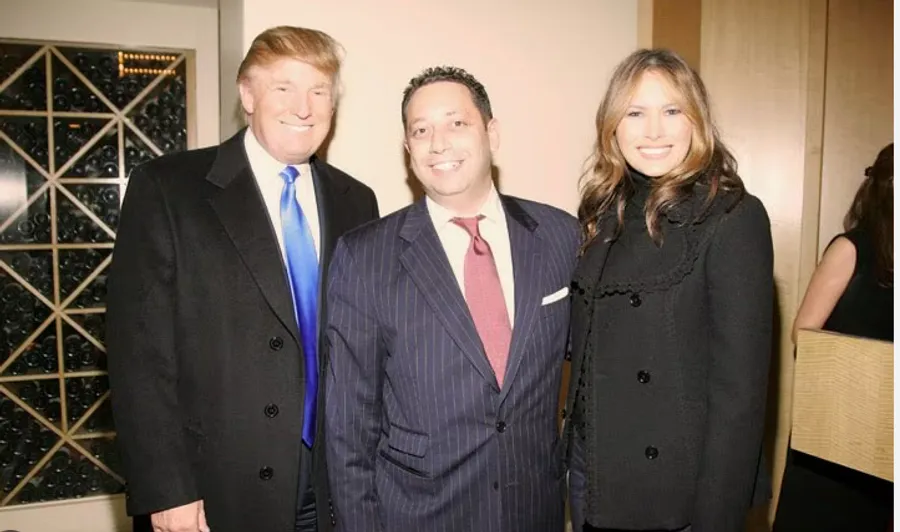
Felix Sater with Donald Trump
A month after the signing of the LOI, Dmitry Klokov, Director of External Communications for PJSC Federal Grid Company, would contact Ivanka Trump through his wife, Lana Erchova. Ivanka would forward Erchova’s email to Cohen, who then set up a phone call with Klokov.
Klokov would describe himself to Cohen as a “trusted person” who can offer the campaign “synergy on a governmental level”, and wanted Cohen to go to Russia to speak with him and an intermediary. Klokov would tell Cohen these talks could lead to a meeting in Russia with Trump and with someone Klokov called “our person of interest”, later identified by his wife as Vladimir Putin.
Cohen would discuss with Klokov a desire to travel to Russia to do site surveys for Trump Moscow, and was willing to meet with Klokov and the intermediary. He stressed though, that any potential meeting between Trump and Putin, would have to happen “in conjunction with the development and an official visit”, with the Trump Org getting an official formal invitation.
Klokov would emphasize that his outreach was not done on behalf of any business, and that they should separate negotiations for Trump Moscow from the meeting between Trump and Putin.
Cohen would end up rejecting Klokov’s proposal, saying that the LOI developer had arranged a meeting between Cohen and the VP’s Chief of Staff. Cohen would claim to investigators that he rejected Klokov because he thought Sater had his own Russian connections, and thus didn’t need Klokov.
At this point, Cohen has already sold out our democracy. Despite knowing that these backchannels are a conflict of interest at best, Cohen would continue to pursue Trump Moscow, since loyal dogs follow their masters’ orders. If anything like this ever happened on the Democratic side, would we ever hear the end of it?.
In December 2015, Cohen began to complain to Sater that nothing had materialized in terms of meetings with Russian government officials, and told him that he was going to set the meeting up himself. On January 11th, 2016, Cohen emailed Dmitry Peskov. Peskov was the Russian Press Secretary at the time.
Cohen mistyped Peskov’s email, using Pr_peskova@prpress. gof instead of @prpress.gov. After correcting the mistype, he emailed Peskov on the 14th, saying,
“Dear Mr. Peskov,
Over the past few months, I have been working with a company based in Russia regarding the development of a Trump Tower-Moscow project … the communication between our two sides has stalled… I respectfully request someone, preferably you; contact me so that I might discuss the specifics as well as arranging meetings with the appropriate individuals…”
Cohen testified to congress that he didn’t remember receiving a response to this email. Also testifying that, by January 2016, he had already decided to kill the Trump Moscow project, a year after Trump decided to run for President. Cohen lied through his teeth to Congress.
On January 20th, 2016, six days after his email, he received an email from Peskov’s assistant, Elena Poliakova. She told Cohen that she had been trying to reach him, and asked for him to call her on her personal cell number. Cohen called her and spoke to her for 20 minutes, where he described his position to her, outlined the Trump Moscow project, including information on IC Expert. Poliakova said she would need to follow up with others in Russia.
Cohen said he didn’t receive any direct followup after THIS email, telling investigators that he misremembered receiving the second email.
Cohen was once again caught lying. The day after Cohen’s call with Poliakova, Sater would text Cohen. He asked him to call for a few minutes to chat. “It’s about Putin they called today”. Sater would go on to send Cohen a draft invitation to visit Moscow and discuss the project. After getting feedback on the draft, he sent Cohen an invitation, signed by oligarch Andrey Ryabinskiy, to go to Moscow for a “working visit” with the hopes of coordinating a follow up with “Mr Trump”. Cohen decided not to go, and he told investigators he was concerned about the lack of solid proposals about land plots.
Discussions on traveling to Moscow did not end with Peskov. On December 19th, 2015, Sater would email Cohen that he was speaking with a high level bank executive, who would need a scan of every single page of Trump and Cohen’s passports, with invitations and visas to be issued that same week. Sater would note in the email that Putin could not issue an invite, so the invitation had to be sent under commercial/business grounds.
Cohen would send over the images of his passport, and requested Trump’s passport from Trump’s assistant at his organization. The assistant would bring Trump’s passport to Cohen’s office, but investigators were unable to find any evidence that it was sent to Sater. It’s important I note here - Just because no evidence was found, doesn’t mean these things didn’t occur, only that there is insufficient evidence to prove it. Cohen may well have sent the passport to Sater and deleted the messages, or shown it to him in person, or delivered copies through an intermediary. Conspiracy should be treated with skepticism, but the amount of proven lies told by Cohen, as well as his eventual conviction, shows that Cohen had reason to hide crimes and obfuscate the investigation.
On April 20th, 2016, Sater emailed Cohen again, asking when he would be coming to Moscow. Sater followed up on this email on May 4th, 2016, saying,
“I had a chat with Moscow. ASSUMING the trip does happen the question is before or after the convention…it’s probably after the convention … but the 2 big guys where [sic] the question. . . . Let me know about If I was right by saying I believe after Cleveland...”
Cohen would respond “My trip before Cleveland. Trump once he becomes the nominee”.
Cohen was the loyal enforcer in Trump’s personal mafia, the man who wiped the blood off the table after the boss finished his meal. When the house of cards began to collapse, Cohen did what every good mob soldier does. He took the fall. Cohen protected the Don until it was too late to save himself. In the end, he wasn’t betrayed by Trump’s orders, but by his own devotion and avarice. Cohen was one of the only people convicted in his gang who didn’t receive a pardon. All that work, and three years in prison, to end up betrayed for perceived disloyalty.
Cohen worded it best himself in his memoir, Disloyal.
“That was what a decade of abject sycophancy to Donald Trump got me: absolutely nothing.”
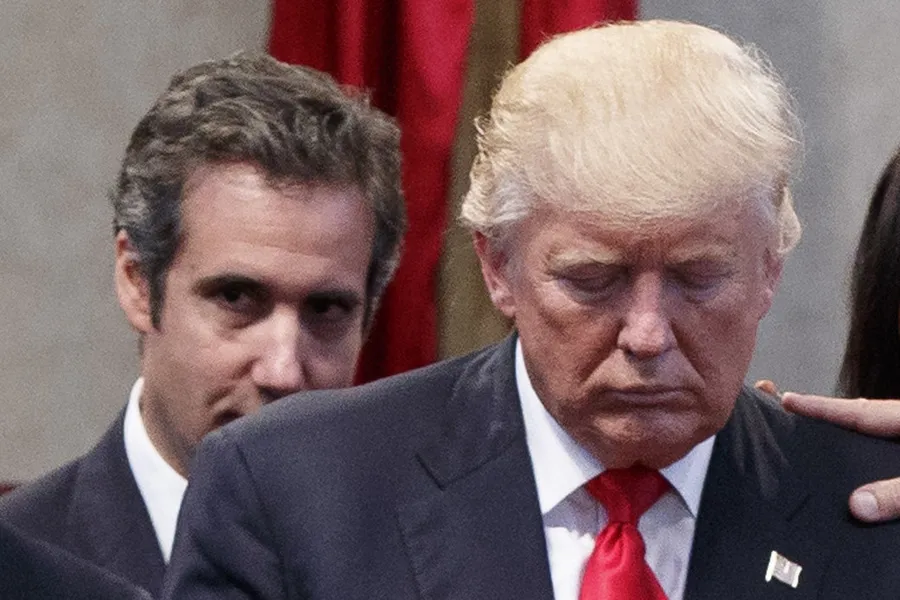
Cohen and Trump
Political Risk Insurance
Paul Manafort was the Trump Campaign Chairman from March to August 2016. He was recommended to Trump by both Roger Stone and Thomas Barrack for the position. Stone had worked with Manafort in the 80s and 90s through consulting and lobbying work. Manafort met Trump in 1982 when he hired his lobbying firm. They even attended Stone's wedding. Manafort agreed to work for the campaign without pay.
Before that, he had done prior work for Russian Oligarch Oleg Deripaska from approximately 2005 to 2009. He also did political consulting work in Ukraine from 2005 to 2015, as right-hand man to Viktor Yanukovych, and helping the Party of Regions, Yanukovych’s pro-Russia party, win the election.
He managed these connections through an employee, Konstantin Kilimnik, who ran his office in Kiev and who the FBI assesses to have ties to Russian intelligence.
A memorandum describing work that Manafort performed for Deripaska in 2005 regarding the post-Soviet republics referenced the need to brief the Kremlin and the benefits that the work could confer on “the Putin Government.”
Rick Gates, Manafort’s deputy on the campaign, would describe the work Manafort did for Deripaska as Political Risk Insurance, with Deripaska using Manafort to install friendly political officials in countries that Deripaska had business interests in. Deripaska even invested in an investment fund created by Manafort to pursue investments in Eastern Europe. Deripaska was the sole investor. Manafort's company earned tens of millions from working with Deripaska, but their relationship eventually soured. When the fund failed, litigation ensued between them. Gates said that by 2009, the relationship had dried up, and that the interactions involved trying to resolve the legal dispute.
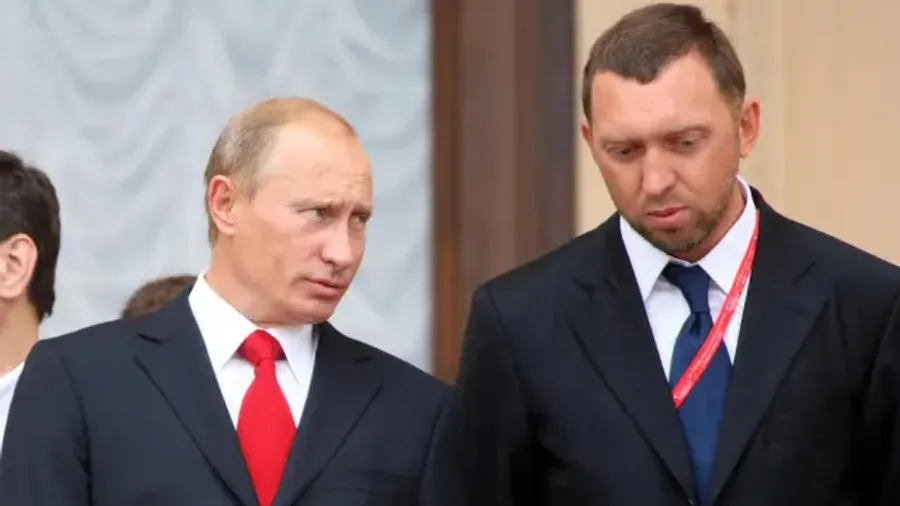
Deripaska and Putin
As soon as he was hired, Manafort told Gates to prepare memoranda for Deripaska, Akhmetov, Serhiy Lyovochkin, and Boris Kolesnikov, the last three being Ukrainian Oligarchs who were senior Opposition bloc members. Memoranda described Manafort being on the campaign, and his willingness to consult on Ukrainian politics in the future. These were sent on March 30th, 2016 to Kilimnik for translation and dissemination.
Manafort said that being hired would be good for business, and increase the chance he gets paid the $2 million he was owed for consulting in Ukraine. Manafort thought his role would confirm that Deripaska would drop the lawsuit, and according to Gates, sent the internal polling data to further that goal. Manafort never told Gates specifically what he was offering Deripaska.
Gates was instructed to send Kilimnik internal polling data in April 2016 or early May, so that Kilimnik could share it with the oligarchs. Gates sent the data periodically via WhatsApp, and would then delete the communications every single day. After Manafort left, Gates continued sending, though it was more public info and less internal data. Manafort would later claim he never told Gates to send that data.
Gates’s account had emails that were consistent with his telling of events. After an email from a Ukrainian reporter about the failed investment with Deripaska, Manafort would email Kilimnik, asking if there was movement on “this issue with our friend”. Kilimnik replied,
“I am carefully optimistic on the question of our biggest interest. Our friend [Boyarkin] said there is lately significantly more attention to the campaign in his boss ' [Deripaska's] mind, and he will be most likely looking for ways to reach out to you pretty soon, understanding all the time sensitivity. I am more than sure that it will be resolved and we will get back to the original relationship with V. 's boss [Deripaska].”
Manafort quickly replied that Kilimnik should tell Deripaska that if he needed private briefings, Manafort would accommodate. Manafort would go on to tell investigators that he would only tell Deripaska about public campaign matters, such as why Trump picked Mike Pence as his VP. Manafort claimed this briefing never went through, and noted that if Trump won, Deripaska would want to use Manafort to advance whatever interests Deripaska had in the United States and elsewhere.
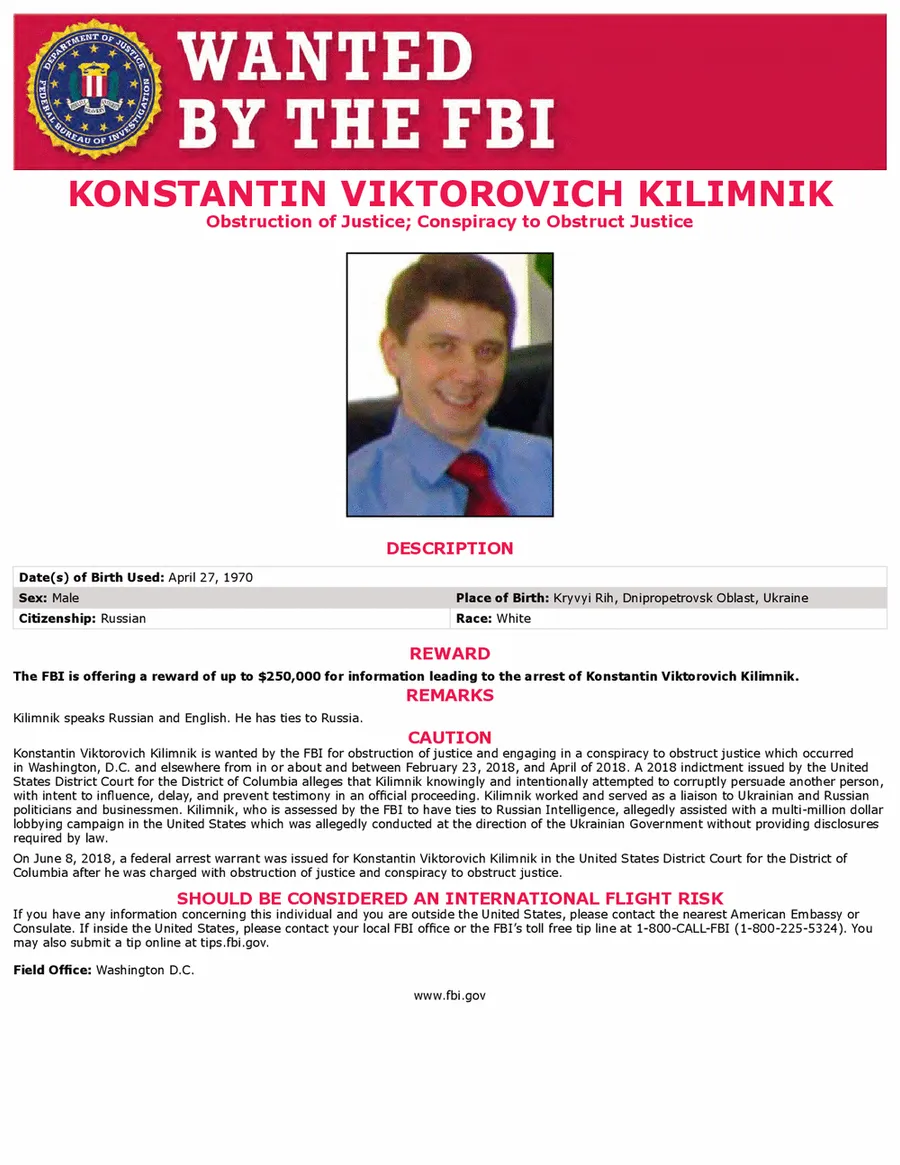
Konstantin Kilimnik
Manafort met with Kilimnik in person twice, on May 7th 2016, and again on August 2nd.
Before meeting with Manafort on May 7th, 2016, Kilimnik spent the days leading up to it gathering information on the situation in Ukraine. This includes information from a trip that a former Party of Regions official, Yuriy Boyko, had taken to Moscow. This trip likely included meetings with high-ranking Russian officials.
On May 7th, 2016, Manafort and Kilimnik met, where Kilimnik briefed Manafort on Ukraine, and Manafort briefed him on the Campaign. Manafort expected this information to be brought back to people in Ukraine and elsewhere.
Later, Kilimnik would travel to Moscow from Kiev on July 28th, 2016, and emailed Manafort in code about a conversation Kilimnik had that day. The subject of this email was Black Caviar.
“I met today with the guy who gave you your biggest black caviar jar several years ago. We spent about 5 hours talking about his story, and I have several important messages from him to you. He asked me to go and brief you on our conversation. I said I have to run it by you first, but in principle I am prepared to do it. . . . It has to do about the future of his country, and is quite interesting.”
In 2010, after Manafort had helped Yanukovych win the Ukrainian Presidency, he and Yanukovych celebrated together. Manafort was gifted a massive jar, filled to the brim with black caviar, worth around 30 to 40 thousand dollars. Yanukovych understood that a good mob boss always rewarded their underlings.
On July 31st, Kilimnik flew back to Kiev, and emailed Manafort that he needed 2 hours for their next meeting, “because it is a long caviar story to tell.”
They met again on August 2nd, 2016, at the Grand Havana Club in New York City. Manafort and Gates had different recollections of the meeting, but at least three principal topics were discussed.
First, they discussed a plan to resolve problems in Ukraine, by creating an autonomous republic in the Donbas region of Ukraine, and installing Yanukovych as its leader. Manafort would acknowledge this was a “backdoor” means for Russia to control Eastern Ukraine. Manafort would also say that if he hadn’t cut off the discussion, Kilimnik would’ve asked him to convince Trump to favor this plan, and that Yanukovych would’ve expected Manafort to use his connections to support the plan.
Manafort also said that he thought the plan was crazy, and that the discussion ended there and that it didn’t come up again. This was a lie. Manafort acknowledged that, in a December 8th, 2016 email, Kilimnik brought up the peace plan again, and again in two more meetings with Manafort in January and February 2017. These meetings are unfortunately censored.
Second, Manafort briefed Kilimnik on the Campaign, and his plan to win the election. This meant the Campaign’s messaging and its internal polling data, as well as discussion of battleground states.
Third, Manafort and Kilimnik discussed two financial disputes related to Manafort’s work in Ukraine, likely to be the Deripaska lawsuit and the $4 million owed to him by the Opposition Bloc for his consultation work.
Manafort would resign in mid August 2016, amid controversy surrounding his consultation work for the Party of Regions in Ukraine.
Manafort would still continue to offer advice to Trump campaign officials, such as sending Kushner a strategy memorandum, proposing to make the case against Clinton “as the failed and corrupt champion of the establishment”. He also referenced that “Wikileaks provides the Trump campaign the ability to make the case in a very credible way – by using the words of Clinton, its campaign officials and DNC members.”
When Trump won the election, Manafort said he was not interested in an administration job, telling Gates he wanted to monetize his connection to the administration as an outsider. Manafort would travel to the Middle East, Cuba, South Korea, Japan, and China and was paid to explain what a Trump presidency would entail.
On January 15th, 2017, Manafort emailed K.T. McFarland, designated to be Deputy National Security Advisor. He stated “I have some important information I want to share that I picked up on my travels over the last month.”, apparently in relation to Cuba. McFarland was advised by Michael Flynn to ignore Manafort, which she happily did.
Paul Manafort’s time atop the Trump campaign wasn’t about politics, it was about profit. Manafort would use his position to court oligarchs, settle debts, and whisper sweet nothings to the Kremlin through his ghostly fixer, Konstantin Kilimnik. Manafort had long sold his black soul for matching caviar, but the salty stench of his corruption will never escape him.
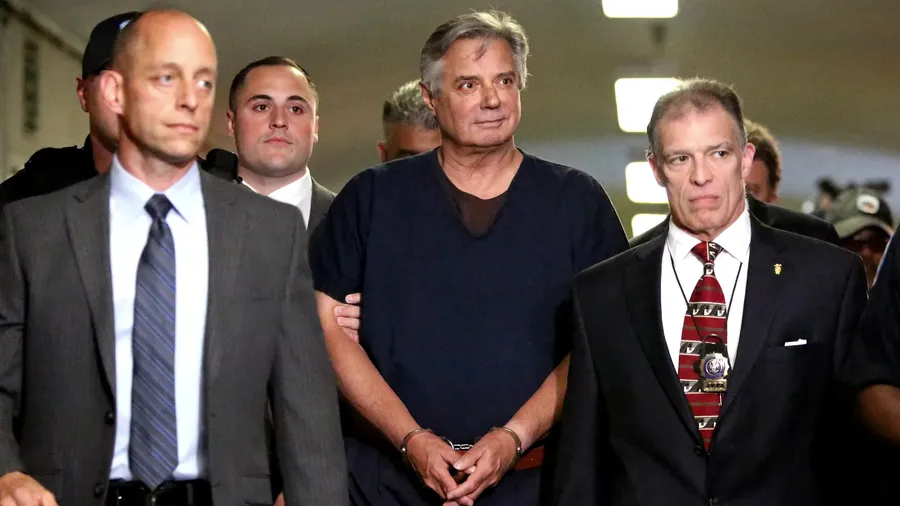
Paul Manafort
Manafort would be found guilty of eight counts of financial crimes, with Gates testifying that he helped Manafort with tax evasion and embezzlement. Though he would later be pardoned by President Trump, erasing any semblance of punishment or justice. Cohen would not be so lucky, spending 3 years in prison for breaking campaign finance regulations, and for make false statements to a bank.
If we care about preserving democratic norms, we need to hold the players to account, and make sure the next generation recognizes that some jars of caviar come with a price tag far higher than anyone’s appetite should tolerate.